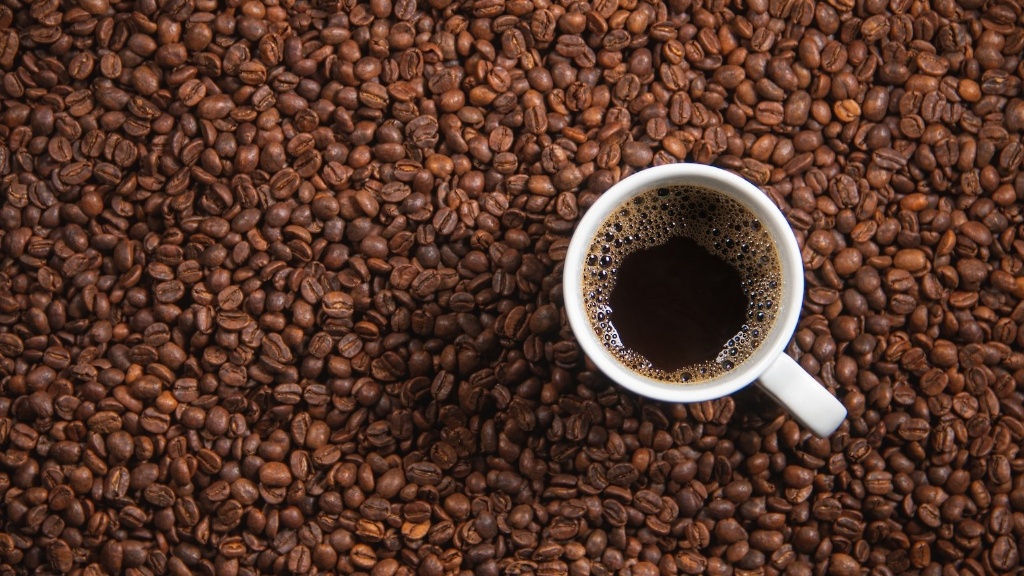Should You Drink Coffee with a Headache?
Many of us have heard that caffeine can help to relieve a headache. It is natural to assume that having a cup of coffee when in pain is a good choice, however drinking coffee when you have a headache can vary in effectiveness. Before you reach for that cup of coffee next time you have a headache, read on to understand the complex relationship between coffee and headaches and the opposing views of experts.
Caffeine is known to be an efficient pain reliever. A study conducted by the Thomas Jefferson University found that ingesting caffeine can reduce the perception of pain. Caffeine has been found to block adenosine, a chemical which can cause drowsiness by accumulating in the brain over time. Caffeine can stimulate the brain and make it more alert; this is why many of us reach for a cup of coffee when feeling tired.
However, not all sources recommend drinking coffee in case of a headache. A 2004 Mayo Clinic study found that caffeine can be most effective when taken at the first sign of a headache, however it can be less effective if the headache has persisted for some time. This knowledge indicates that there is a “window of opportunity” for caffeinated beverages to work best in relieving a headache.
Moreover, it is widely known that drinking coffee regularly can cause headaches as well. High doses of caffeine over long periods have been linked to increased headaches and other health issues. A 2018 study by the National Institute on Drug Abuse found that regular consumption of coffee can cause tension headaches and even lead to addiction. Furthermore, the over consumption of coffee can lead to an increased risk of an increased tolerance, meaning that coffee can become less effective in relieving headaches.
Overall, coffee can be both good and bad in regards to headaches. With an understanding of the complex relationship between coffee and headaches, it is apparent that drinking coffee should be done in moderation and with care. Further research and studies need to be done to understand the mechanisms behind how coffee and other caffeinated beverages can help to relieve a headache. Knowing when and how to drink coffee may be the key to making it a viable option for relieving headaches.
What if You Do Not Like Coffee?
Just because you do not like coffee does not mean that caffeine is off the table for relieving headaches. Many alternatives are available, such as black or green tea. Whether your preference is coffee, tea, or something else, caffeine can still be an effective way of dealing with a headache. Furthermore, other caffeinated beverages, such as soft drinks, can also be used.
A good practice is to listen to your body. If you struggle to drink caffeinated beverages often it will likely not be a good way of dealing with headaches. Further, there are many other natural remedies which can be used. Although it is important to note that drinking coffee with a headache can cause harm depending on the severity of the headache and other factors, it is widely recommended to seek medical advice and diagnosis if pain persists for a long time.
Factors Related to Headaches Explained
The severity and intensity of headaches can vary from person-to-person and from time-to-time. Different types of headaches can have different triggers and pain relief options. Tension headaches are often the most intense and occur more often compared to other types of headaches. These headaches are related to stress, pressure, and tiredness; an extra cup of coffee in the morning may help to reduce this type of headache.
Migraine headaches are also very common and can be disruptive to everyday life. These headaches show up on one side of the head and usually last for hours to days. This type of headache is usually accompanied by nausea, light sensitivity, and other symptoms. In this case, it is important to consult with a doctor to discuss medical cure and pain relief options, as these headaches may require medical treatment.
Caffeine for Pain Relief: Pros and Cons
Overall, it is clear that caffeine can potentially have a positive effect on headaches, however it is important to keep in mind that caffeine isn’t a “cure-all”. While it can be effective at relieving headaches, it can also worsen some types. Too much caffeine can be bad for your health and cause side effects such as anxiety, irritability, and insomnia.
The most effective way of dealing with headaches is to consult a doctor and report any underlying conditions. Some types of headaches can be related to serious medical conditions and require medical intervention. If your headache is caused by something other than stress or lack of sleep, it is best to seek professional medical advice.
Alternative Methods of Pain Relief
There are a range of natural methods of relieving the pain associated with headaches. Mind-body practices, such as mindfulness and deep-breathing, can be effective for both tension headaches and migraine headaches. In addition, certain herbs, essential oils, and foods can be used to ease the pain. Other forms of exercise, such as yoga and Pilates, can also help to reduce stress and improve mental health.
Furthermore, daily practices such as getting enough sleep, reducing stress, and improving your diet can be useful in dealing with the causes and symptoms of headaches. It is essential to maintain a healthy lifestyle and to be mindful of the risks associated with excessive caffeine consumption.
Headaches and Stress Management
Many headaches are related to stress, as stress can increase the intensity and recurrence of headaches. Therefore, it’s important to practice stress management techniques and to learn how to better manage stress in order to help alleviate headaches. Stress management techniques such as deep-breathing, yoga, journaling, and listening to calming music can be used to help reduce stress levels.
Any form of cognitive behavioural therapy (CBT) can also be a useful tool for stress management, as it can help to recognise patterns of thinking and behaviour which may be causing stress and anxiety. It is also important to take breaks from mentally draining tasks and to establish a regular daily routine to help reduce stress levels.
Caring for Yourself and Staying Healthy
As headaches can be linked to serious medical conditions and stress, it is important to establish healthy practices and habits to help prevent headaches. In addition to getting enough sleep and exercise, it is also important to practice self-care to reduce stress. This can include activities such as meditating, reading, and spending time outdoors.
Finally, it is important to be mindful of what you put in your body and to limit your consumption of caffeine and alcohol. These substances can exacerbate headache pain and should be avoided, especially when dealing with a headache.




